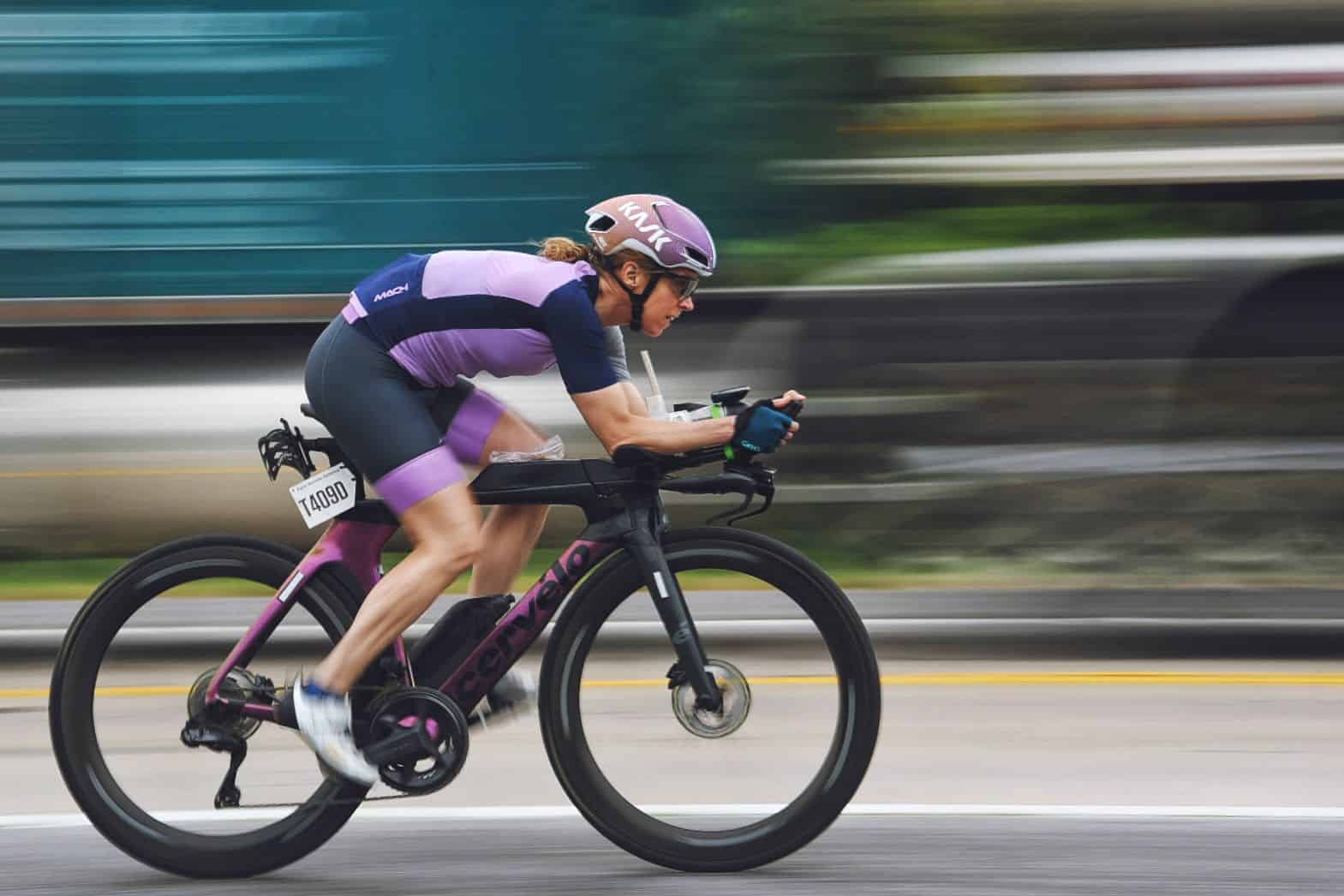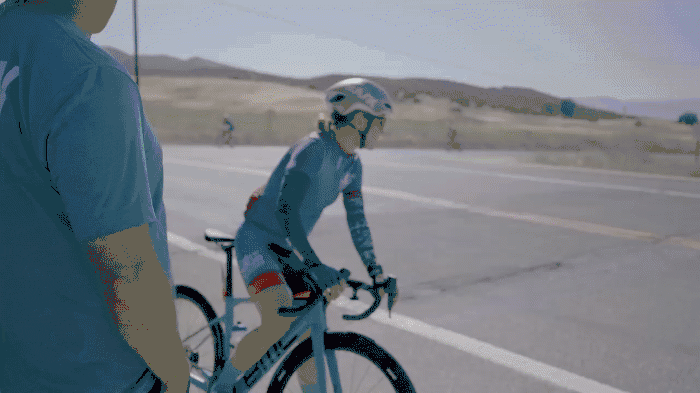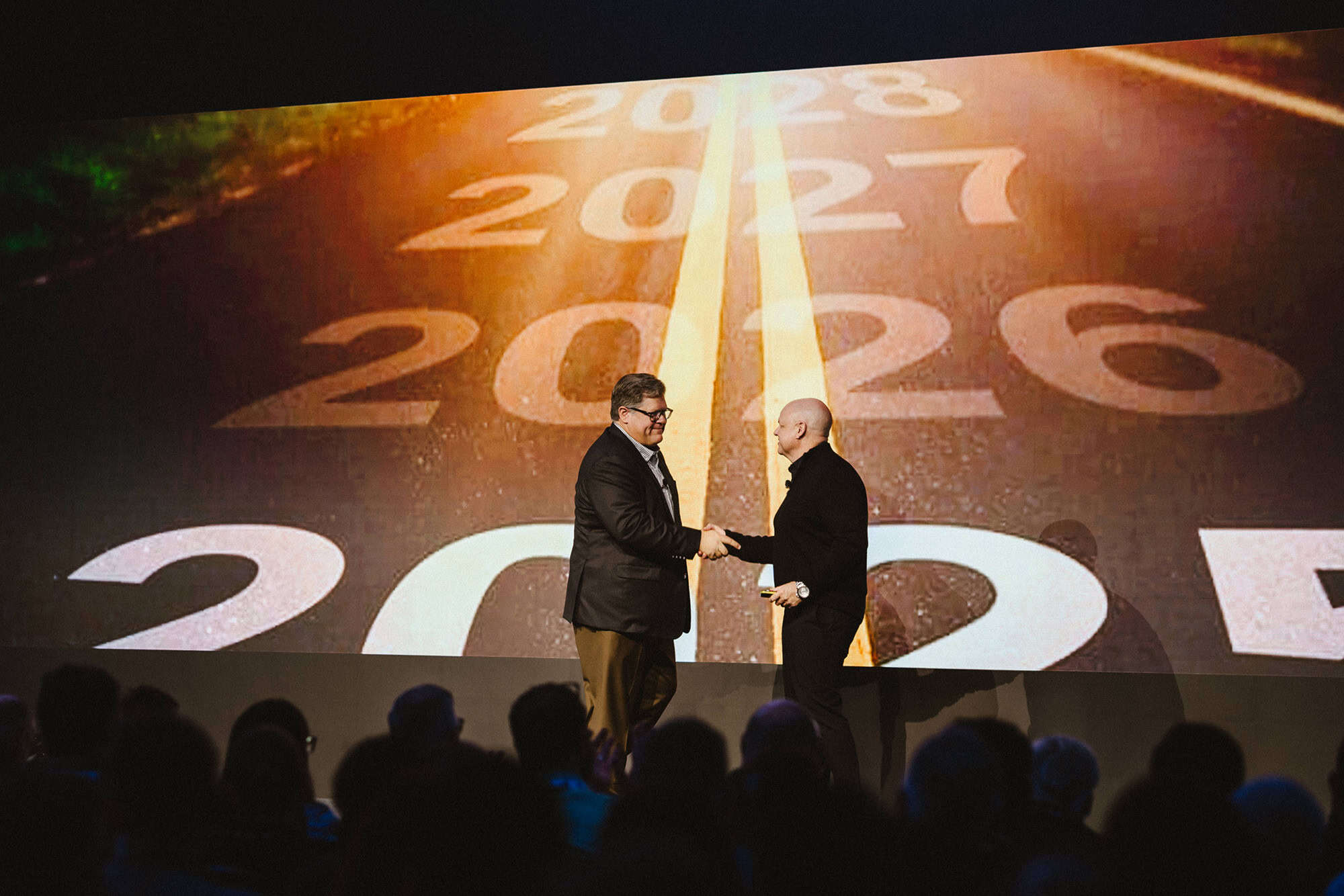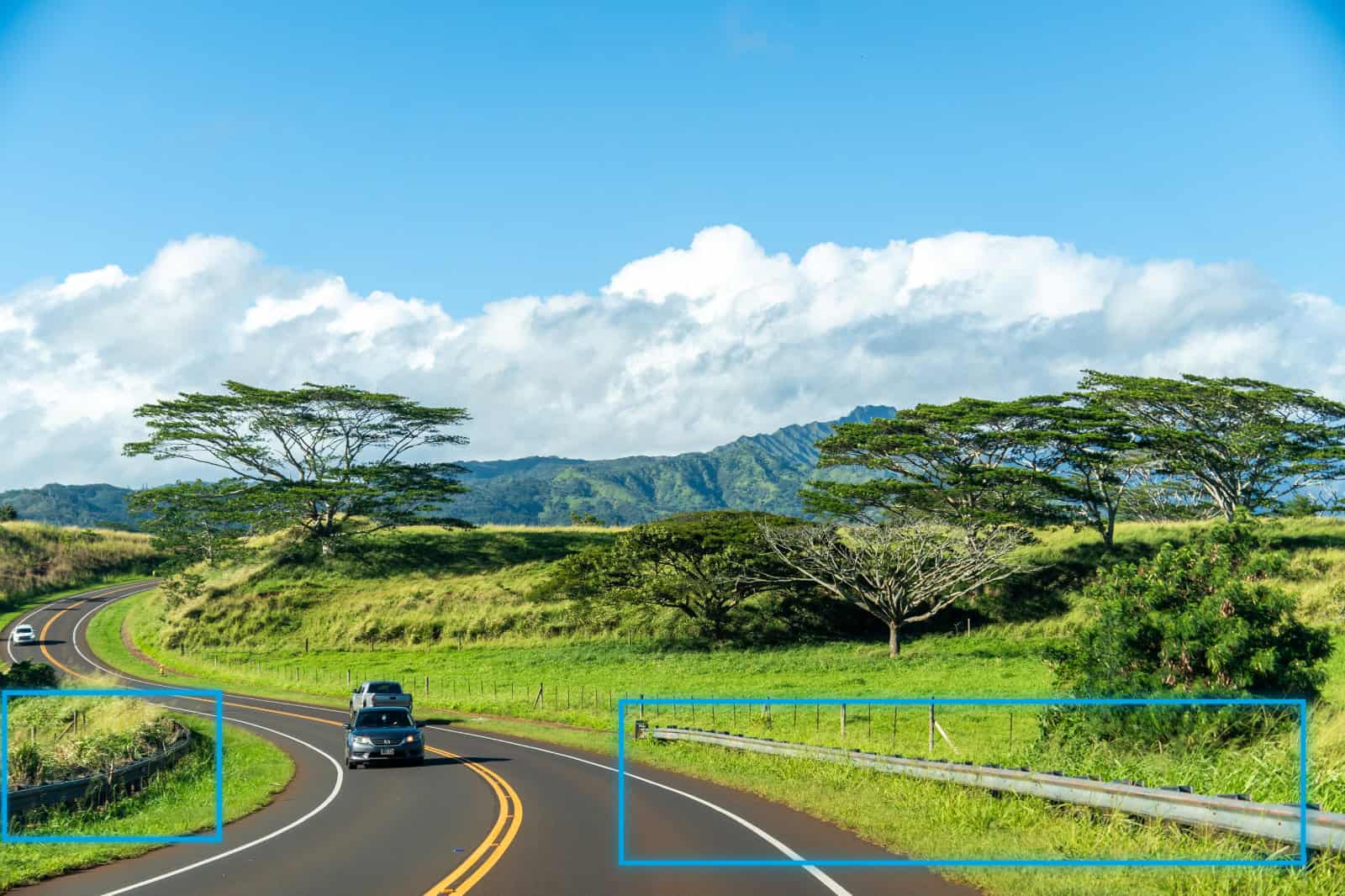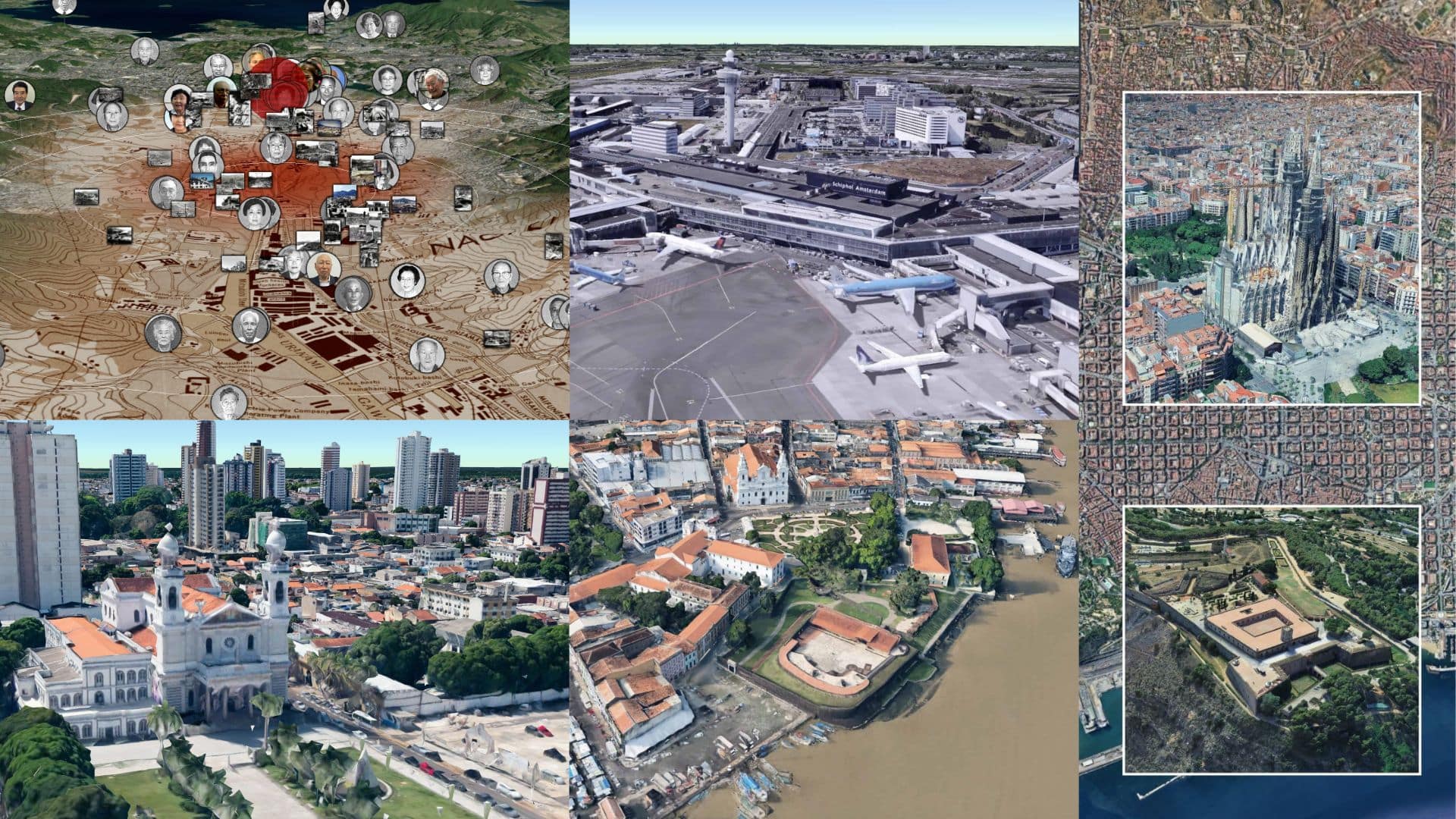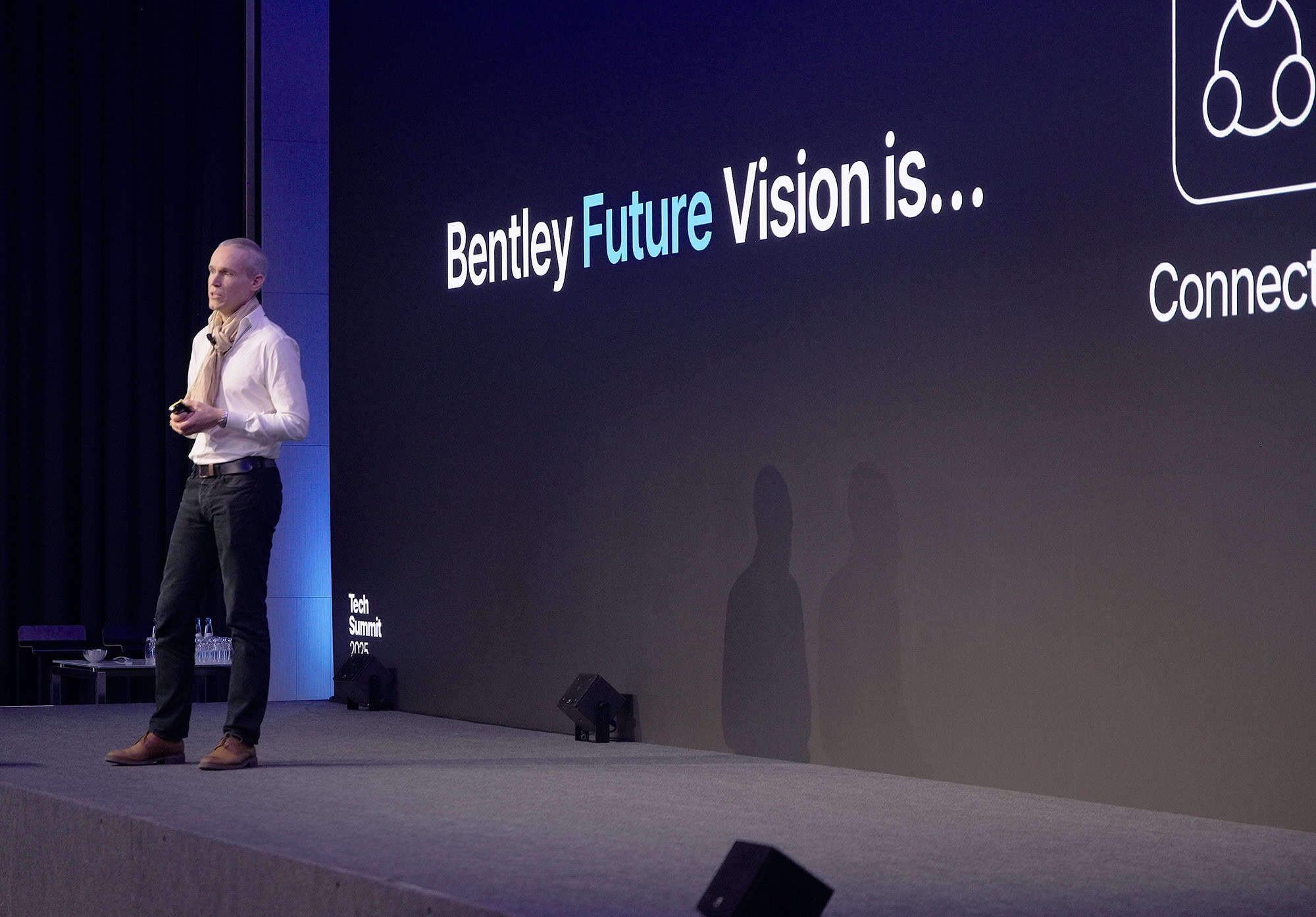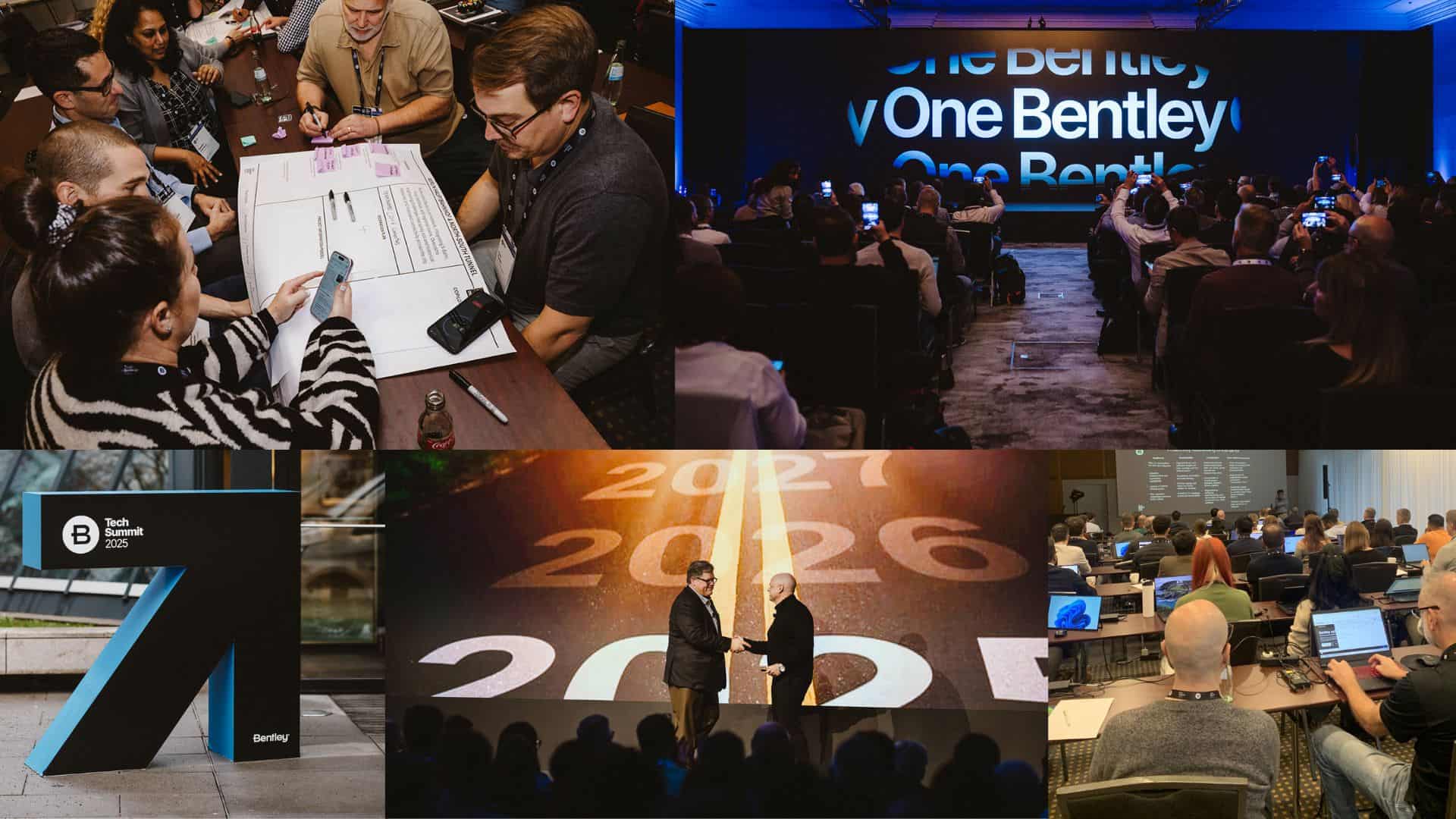It was somewhere in the middle of Kansas when brutal crosswinds threatened to blow Katie Aguilar off her bike. Augilar had been surviving on little sleep and a diet of bagels, Bonk Breaker protein bars, and espresso shots, but she remained focused and undeterred. She sat hard on her saddle, gripped her handlebars, fired up her legs and found a way to muscle through, knowing that her Four the Record teammates were with her every crank of the pedals.
In June, Atlanta-based Aguilar, who works as geospatial engineer at a subsidiary of Bentley Systems, the infrastructure engineering software company, and her four-person, all-female team competed in the grueling 3,063-mile Race Across America (RAAM). The race, which is 30% longer than the Tour de France, starts in Oceanside, California, and crosses through 13 U.S. states. The route climbs more than 170,000 vertical feet over three major mountain ranges. Riders cross four of the country’s biggest rivers and navigate busy highways and city traffic in the ultimate test of endurance and grit.
Along with setting records, the women were raising money for Inspiring Girls International, an organization that brings aspiring young girls together with female role models from all walks of life.
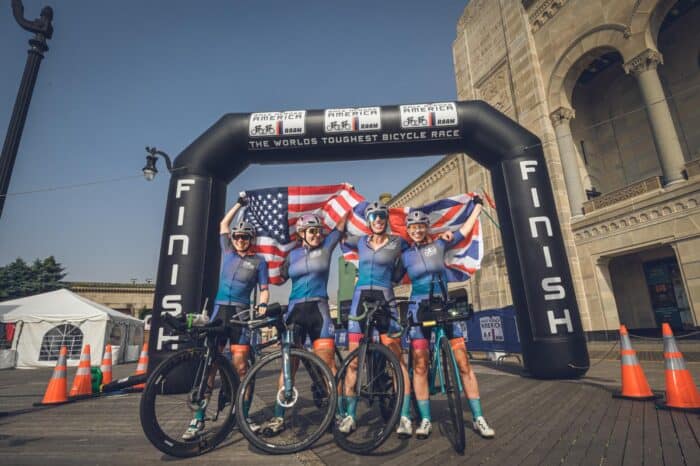 The Four the Record teammates celebrate at the race finish line.
The Four the Record teammates celebrate at the race finish line.The toughest bike race
Once the race begins, the clock doesn’t stop ticking until racers roll across the finish line in Atlantic City, New Jersey. “RAAM is billed as the toughest bike race,” Aguilar said after the race, still buzzing from excitement but nursing a nasal infection from those dusty Kansas winds. “The objective is to make it across the country as efficiently as possible by bike.”
Since 1982, riders have come from all over the world to compete in the race solo or in two-, four- or eight-person relay teams. In addition to being one of the most challenging ultra-racing events, RAAM also offers racers a platform to raise money and awareness for charitable organizations. Aguilar and her team had a specific goal: clock the fastest time in their category and earn a Guinness World Record. They also wanted to break the record for a four-person women’s team under-50, which was set by a German quarter in 2017. That team completed the route in six days, 15 hours and 19 minutes, with an average speed of 19.27 mph.
Aguilar’s team knew it would be tough, but the foursome were up for the challenge. Aguilar, who lives in Atlanta, GA, had completed 17 Ironman distance triathlons, including four trips to the Ironman World Championships. She also finished many half Ironman races, including two World Championships. Her teammates—Dani Overbaugh from tiny Boulder, Wyoming, and Vicki Anstey and Caz Buckland, both from London—were all accomplished veteran endurance athletes. All four had a drive to win. Overbaugh and Anstey each have world records to their names, and Caz routinely races solo. Because two team members lived in the U.K., the team had met over Zoom but never in person until just a few days before go time.
Crosswinds and bagels
During the race, the group took shifts; two slept in the back of the team’s rolling RV while two alternated in half-hour stretches on their bikes, with support crew following close in two minivans. They each rode to their strengths—some excelling at climbing, others at long downhills. They averaged about 750 miles each. Because the riders were either cycling or trying to sleep in four-hour intervals, nutrition intake was a big part of the challenge.
As an engineer who cares deeply about data, Aguilar worked with a nutritionist before the race and closely tracked her protein and carbohydrate intake and locked in on what felt right. She’d consume Ensure shakes, Chobani drinkable yogurt, fruit and a lot of bagels—with hummus, eggs, peanut butter and honey, or cream cheese. “I’ve never eaten more bagels in my entire life, but it’s simple, fast fuel,” she said. “I also discovered the wonderful world of Starbucks espresso shots … that stuff is just magic!”
Aguilar said the four-hour routine and lack of sleep was just a part of the race. “I probably got one to two hours of sleep in each window,” she said. “But I handled it very, very well. I didn’t get tired until we did the last push. We were just awake that entire time.”
Keeping things rolling
Aguilar credits the support crew of about a dozen volunteers for helping the team stay focused on the race. The support crew included her husband who drove the RV for up to 16-hour shifts. “The RV was the sanctuary,” she said. In addition to a driver and navigator keeping the RV operational 24/7, the team had a “house person” who kept everyone fed. “Everyone else was shifting through on the minivans, into the RV, and keeping things rolling, all with the goal of getting us across the country safely and as fast as possible.”
The four teammates rode across the finish line together, winning their category, in six days, 19 hours, 38 minutes. They averaged 18.7 mph (just shy of the German’s 19.2 mph). It was not enough to break the German record, but because no one else had ever completed the arduous application process required to win a Guinness World Record, Aguilar and her team became Guinness’s fastest four female team to cross the country.
Inspiring others
In addition to raising the money to fund the race—paid for by a Go Fund Me campaign and by sponsors like Bentley—the team fundraised to support Inspiring Girls International. “The whole role of Inspiring Girls International is to put role models in front of girls and show them what is possible so that they can dream big,” Aguilar said.
As an engineer who worked her way up to senior application engineer in her 13 years at Seequent, the Bentley subsurface company, Aguilar knows a thing or two about excelling in a male-dominated field. She said that showing up as a role model is important in science as well as in male-dominated sports like cycling. In RAAM, for example, only 18% or racers are women. “Representation matters,” she said. “If you see someone like you doing something, you’re like, ‘Oh, I can do that too.’ It is somewhere where I belong.”
Back at work in Atlanta, Aguilar reflected on how having the support of her community and workplace is essential to belonging and succeeding. “I feel fortunate daily to be on a team where the end goal is to help the software user,” she says. “We each have a unique skill set and area of expertise we bring to the team. Just like in racing RAAM.”
In addition to financial support for the team, Bentley colleagues sent Aguilar messages of support. Her manager even put up a map of the race during a webinar Ground to Cloud she and fellow teammates run and asked attendees across the country, “Has Katie passed by your office recently?”
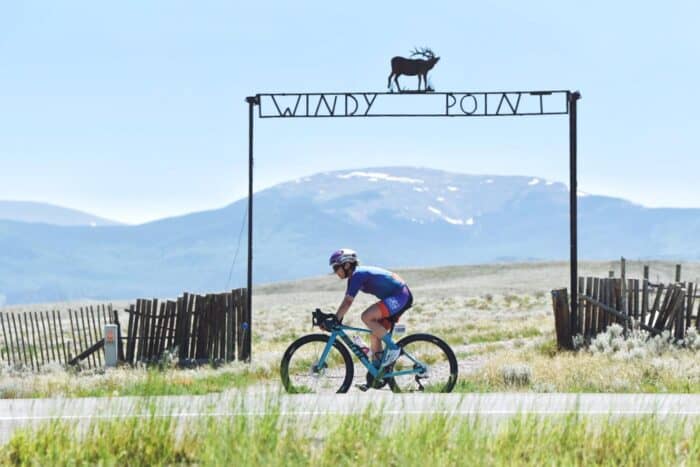 Katie Aguilar cycles through the Midwest, riding past a sign reading “Windy Point” with a deer silhouette on top.
Katie Aguilar cycles through the Midwest, riding past a sign reading “Windy Point” with a deer silhouette on top.Preparing for the race was arduous, and the riding challenging and intense, but Aguilar would do it again.
“In a heartbeat,” she said. “I loved racing that way. I loved everything about it.”
